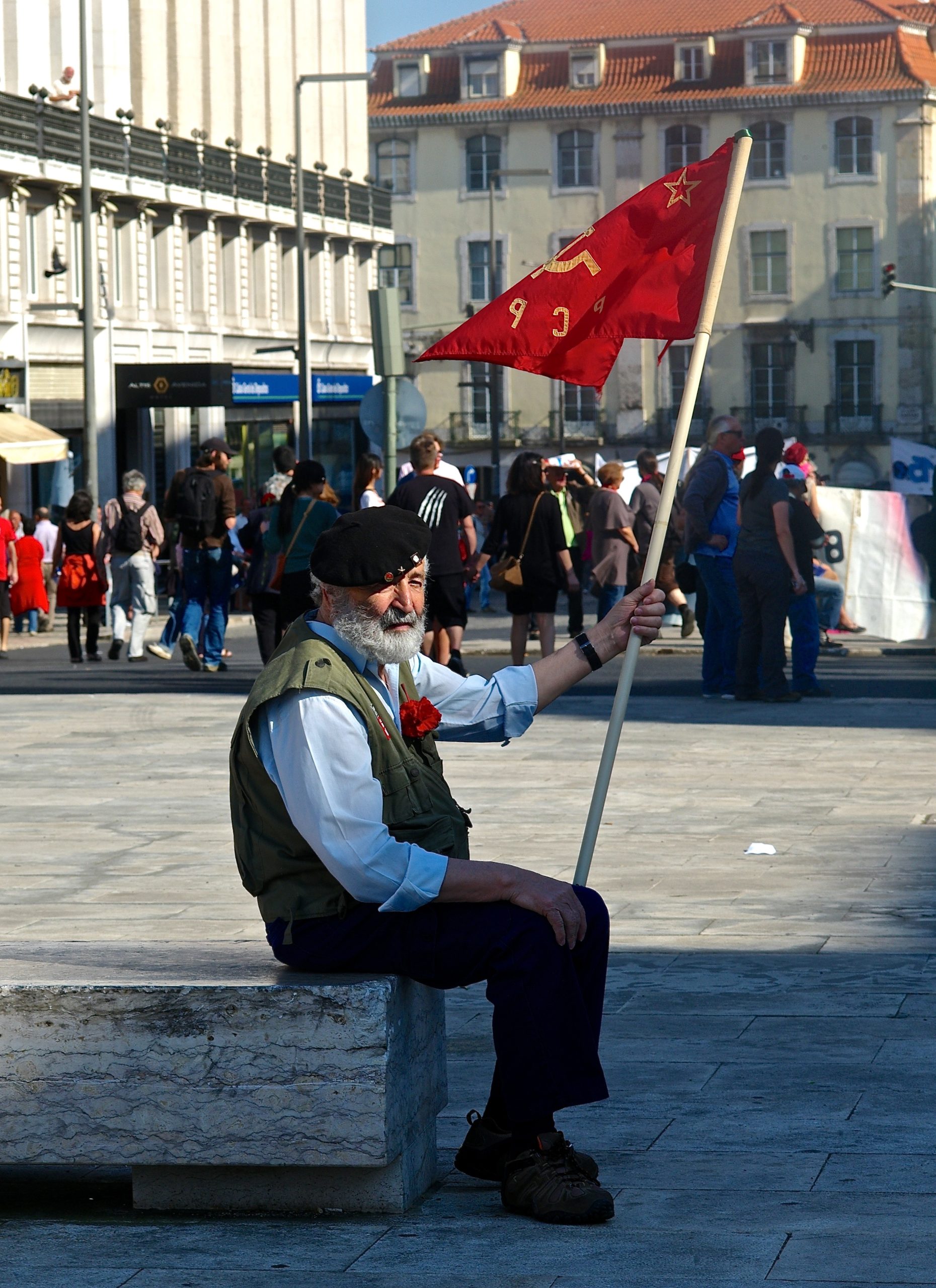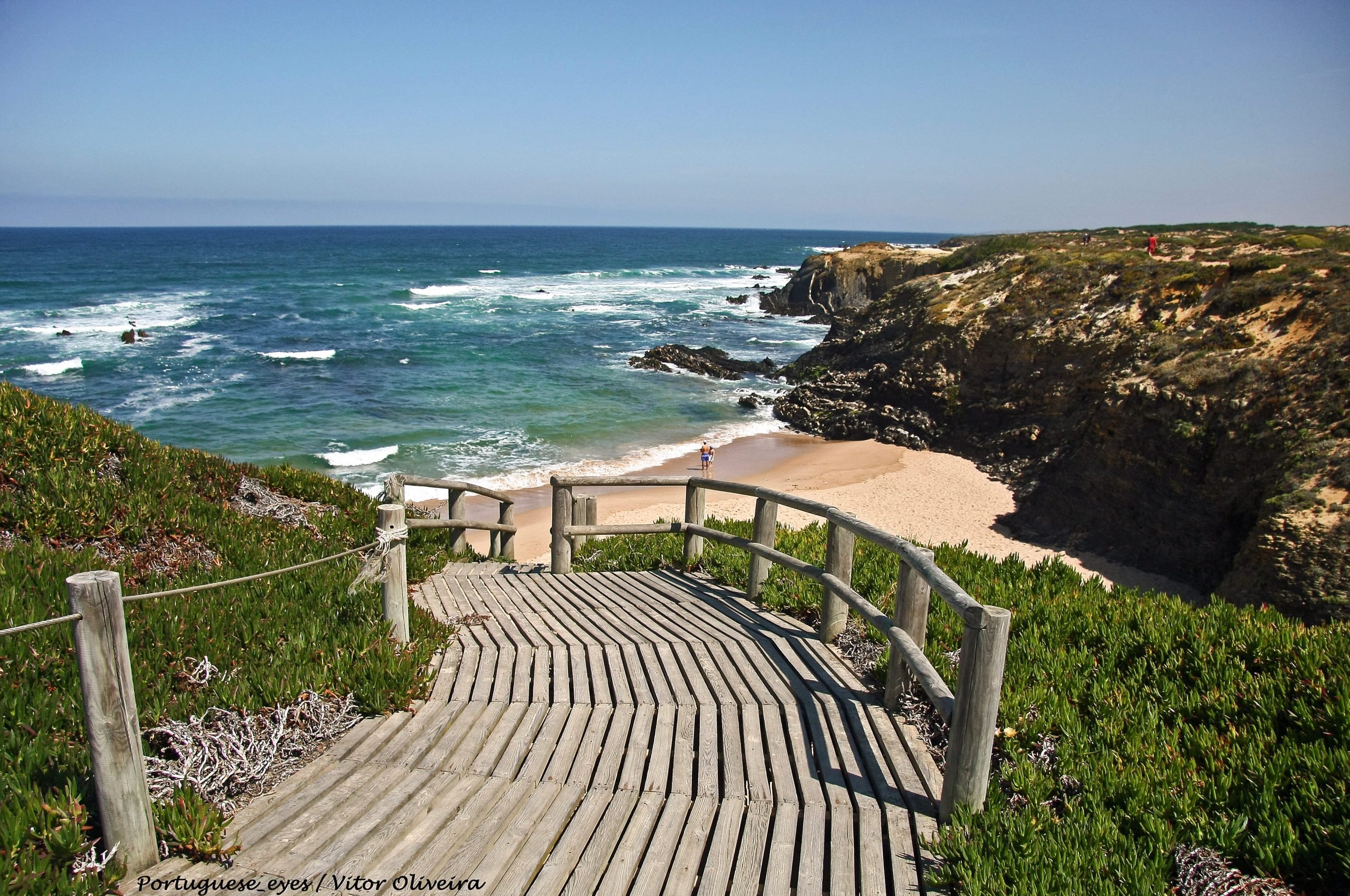If you are packing up your whole life and moving to Portugal, you might be wondering what this life transition will look like. Portugal has a unique set of customs and realities that might come off as unusual to you at first.
From the lack of central heating in houses to the obsession with football and the bureaucracy, you might face some real cultural shock when relocating to Portugal.
Here are 17 things to know before moving to Portugal. Many of these might come as a surprise, but with time they will become a normal part of your daily life that you won’t think twice about.
1. No central heating in most houses in Portugal
While Portugal is generally a pretty warm country all year round, winter nights can still get quite cold.
Unfortunately, central heating is extremely rare in most Portuguese housing. You will find that when you are looking at properties to either rent or buy, they rarely have central heating.
To keep warm, Portuguese people tend to just purchase electric heaters and use those. It’s quite common to layer up on jackets rather than turning these on during the day.
2. Public healthcare is available and is (mostly) free
The 2019 Healthcare are Index lists Portugal’s system as 22nd best out of 89 countries. However, beware that while the quality of public healthcare in Portugal is good, waiting times are often long.
Public healthcare is available through the Servico Nacional de Saude (SNS) for legal residents in Portugal. Under the SNS, healthcare is mostly free of charge as it is funded through general taxation and social security contributions.
However, there are certain costs for specific specialists, treatments, and prescriptions, but these will usually not cost more than 20 euros.
Guide to Healthcare in Portugal
3. Left-wing politics are popular in Portugal

If you’re coming from a country like the United States, where democrats and liberals are considered left-wing, Portuguese people will roll their eyes at such a statement. Portugal has a strong history of left-wing politics that is generally accepted in the country.
After over 40 years of fascism, on April 25th, 1974, a (peaceful) military coup led by leftist military officers known as the Carnation Revolution brought about freedom for the Portuguese. The struggle of both Socialists and Communists in overthrowing the fascist dictatorship is respected in Portugal.
This doesn’t mean that anti-communism is not present. However, it is not as mainstream as in the US or even the UK.
In the 2022 general election, the Socialist Party (PS) won a majority government. This is where politics gets confusing in Portugal. Although it is called the Socialist Party, the political party‘s policies are considered center-left.
4. Portuguese people don’t love it when you call Portugal “cheap” and “affordable”
The minimum wage in Portugal in 2022 is €705 BEFORE tax and a large portion of the population lives on this wage. The cost of living in Portugal is on the rise, especially rental prices in Lisbon and Porto. In Lisbon, most apartments are costing around at least €1000, making it impossible for many to live alone.
So when expats move to Portugal and tell citizens that they did so because the country is so “cheap”, this can rub people the wrong way. Although a €1000 rent for a 1-bedroom apartment might seem cheap to you in comparison to US cities, it can come off as out of touch to point this out.
It’s also clear that the rise in housing prices is somewhat due to a large influx of wealthier people renting and purchasing property in major cities in Portugal (along with other factors such as the rise in tourist rental licenses).
Therefore, the same goes for making comments regarding purchasing a house in Portugal as most Portuguese will never be able to afford their own home. So just beware that comments such as “€150,000 for a house is so cheap” can sound privileged to many.
5. International schools are VERY expensive
If you are moving to Portugal and want your children’s education to remain in English (or German or French), then you will have to enroll them in an international private school.
Although Portugal has some of the best international schools, some can be extremely expensive, particularly the ones in Greater Lisbon.
Private international schools in Portugal tend to cost anywhere between around €7,000 to almost €20,000 a year, depending on the school and your child’s grade. These costs usually don’t even include lunches, field trips, afterschool activities, supplies, and more.
5 Best International Schools in Portugal
6. How you greet people matters
The Portuguese are very into their customs and etiquette. Greetings are important. If you are meeting a Portuguese friend, it is customary to give two kisses on the cheek from left to right. These are called “beijinhos”.
Men do not usually greet other men with “beijinhos”, only if they are family members. Rather, they shake hands or hug.
In big cities, strangers do not greet each other in passing. In smaller villages, this is customary. Use “bom dia” (good morning), “boa tarde” (good afternoon) or “boa noite” (good night), depending on the time of day.

7. Expect loads of bureaucracy in Portugal
If you have already applied for a Portuguese visa, you know. Bureaucracy is a part of everyday life. Whether you are trying to open a water contract or get documents in a public sector service, you’ll find that patience is key.
Whatever it is you need to get done, expect to wait a while and have to fill out useful forms. Then they got lost in the mail and you fill out more useful forms.
But throughout any process, you will at least be treated in a friendly way. A lot of times it’s not the workers’ fault, they are as annoyed by the bureaucracy as you so don’t take it out on them.
8. Forget punctuality and expect shops to be closed at unexpected times

If you are moving to Portugal for a slow-paced life, expect to get that! And this applies to getting your groceries, as well as your social life.
If you arrange to meet a Portuguese friend for dinner at 8, chances are they won’t be there before 8:30. This might come as a bit of cultural shock and seem rude at first, but you will get used to it. Tip – don’t leave the house until you know for sure your friend is on their way.
The same applies to businesses and shops. You might see online that a shop is open on a random Tuesday and once you arrive, the “fechado” (closed) sign is at the door. Sometimes business owners will even leave a note explaining why.
Beware that many shops are closed on Sundays and Mondays, with restaurants often closing on Mondays.
9. Be willing to learn Portuguese
As a tourist, no one would expect you to learn Portuguese. A third of people in Portugal can speak English fluently. The cities of Porto, Coimbra, Braga, and Lisbon have the best English speakers.
However, if you are moving to Portugal, the nicest gesture you could make is learning the language. And it won’t be useless if you ever move away! Over 215 million people around the world speak Portuguese and it is the 6th most spoken language in the world.
If you live away from the main cities, chances are many people might not even speak English, especially the older generation. It will just make your life 10x easier if you can speak the language.
But Portuguese can be a hard language to learn if you don’t know languages such as Spanish, Italian, or French. However, it supposedly only takes a native English speaker around 600 hours or 6 months of study to become fluent in Portuguese. Putting in the effort is worth it!
10. If you are working for a Portuguese employer, salaries are low
There’s a reason many Portuguese emigrants don’t return to Portugal – salaries are low. The minimum wage is €705 BEFORE tax. In 2020, the average gross monthly salary in Portugal was €1,314, around €18,000 a year.
So if you are moving to Portugal to work, know that the financial opportunities aren’t the greatest. Still, there are high-paying jobs, but mostly for senior positions.
Another alternative is relocating your business to Portugal, working remotely, or freelancing with international clients.
Expat Guide to Working in Portugal
11. Portugal’s EU passport is the fifth most powerful in the world
Portugal’s passport is the fifth most powerful in the world in 2022, according to the Henley Passport Index. With a Portuguese passport, you have 187 visa-free destinations, including all of the Schengen area.
After 6 years of residing in Portugal, you can actually apply to get a Portuguese passport and citizenship. Take a look at the types of visas in Portugal so that you can start the path to citizenship.
12. Figure out if you are eligible for the Non-Habitual Resident (NHR) Tax regime

The NHR tax regime was introduced in 2009 in order to attract “high-value” talent and wealth to Portugal. It offers reduced tax rates and even full tax exemptions for the first ten years of residency.
The NHR tax regime is available to all new tax residents in Portugal that were not Portuguese tax residents for the 5 years prior. If this is your case, you might be eligible!
If you have a “high valued” job that is related to activities of scientific, artistic, or technical character, you might be eligible for a 20% flat tax rate.
Under the NHR regime, you will also not pay any tax on dividends, interest, royalties, capital gains, rental income from real estate outside Portugal, and income from employment in another country.
Guide to the Non-Habitual Resident (NHR) Tax Regime
13. The water can be quite cold
Portugal might have some hot summers, but it does not have a tropical climate. You might be surprised at the temperature of the water when you take a dip in the ocean. However, when temperatures are really high on a hot summer day, the cold water is a blessing.
Some of the best beaches will actually have pretty cold water, particularly beaches in the north, as well as in the south in the Alentejo.
However, the Algarve tends to have the warmest sea temperatures. The water temperature in the Algarve in August averages at around 71.1°F / 21.7°C.

14. Buying a home rather than renting has great visa advantages
Purchasing a home could land you a Portuguese Golden Visa and eventually, Portuguese citizenship. Created in 2012, the Portugal Golden Visa is known as one of the most attractive in the world.
The program allows non-EU citizens to qualify for a residency permit and eventually a passport in the country through investments. One of these investments can be purchasing a property.
The general rule is the property must be at least €500,000. However, you can spend less. If you purchase real estate in a low-density area in Portugal, the minimum to spend is €400,000.
You can also buy real estate that is over 30 years old in an urban rehabilitation area and renovate it for at least €350,000.
The Portugal Golden Visa has amazing benefits such as allowing you to travel freely through the Schengen area and family reunification.
After legally residing in Portugal for at least 6 years, you can apply for Portuguese citizenship.

Guide to the Portugal Golden Visa
15. Carry cash with you
This one is not too difficult to adapt to once you get used to it. While in most European countries a bank card is usually accepted everywhere, many shops and restaurants in Portugal will only take cash. This is also the case if you want to purchase train and bus tickets in certain places.
Cards are usually accepted in Lisbon and Porto, but even smaller establishments only take cash. To be safe, just always carry some with you!
16. Portugal has some of the highest energy bills in Europe
While the cost of living is affordable in comparison to other European countries, the energy bills, not so much. Energy bills in Portugal are actually some of the highest in Europe.
Basic energy utilities average out at €150 depending on the size of the household. It’s part of the Portuguese mentality to save on energy bills as everyone watches their consumption. This is done by not leaving lights on unnecessarily and reducing any heating consumption (yes, even without central heating).
17. Drugs are NOT legal
Drugs are not legal in Portugal, this is a myth! However, all drugs are decriminalized, including largely stigmatized drugs such as meth and heroin.
Portugal decriminalization all drugs on July 1, 2001, making it the first country in the world to do so. The law made drug possession for personal use legally prohibited, while drug trafficking remains a criminal offense.
This does not mean drugs are legal. It means you won’t be fined or arrested for having a certain small amount for personal use.
If you carry over the legal amount of a specific drug, you could face criminal persecution. The legal amount will vary by drug. For cocaine, you can carry up to 2 grams and for hash, you can carry up to 5 grams in Portugal.
Portugal now has some of the lowest drug usage rates in the European Union (EU), where most countries hold criminalization models.
Portugal Drug Laws under Decriminalization



Great run thru! & Good “feel”
ENJOY THE IDIOMATIC POINT OF VIEW
Very useful info, and excellent presentation. Planning a move to Portugal, and this was really helpful.
Well HOW in the World IS THAT for MATH??
Average LOW income is1300€! And a 2 Room 70m2
Apartment cost about 1400€Cold PLUS the aUtillity Bills of 250€ Plus TV Internet 75, Plus 5-600€ Groceries! Plus the cost for A Car /Gasoline add.300€ soooo In my Book is The True COST of Living EQUALS: 2X the average „ Income“ THIS MAKES NOOO SENSE!
Dear Hans, it is really shocking how low the wages can be compared to the rent prices these days, especially in Lisbon and Porto. Living on a single income seems almost impossible in the big cities if you are on local wages and many people need to share spaces with other people to afford rent in the big cities or work two or three jobs. Many Portuguese have to live far outside the Lisbon and Porto centers to afford the rent.